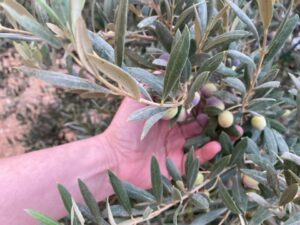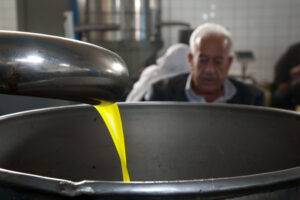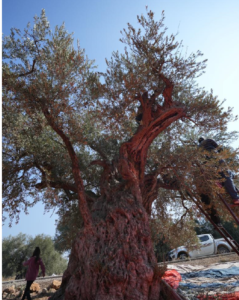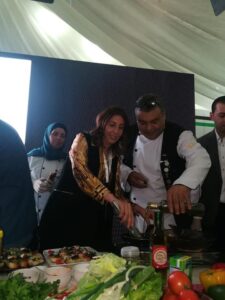Olive Oil sector
From the heart of the Levant, Jordan offers you some of the finest extra virgin olive oils. We combine ancient traditions with modern techniques, applying high-level international quality standards. Our olives originate from the oldest varieties in the region and are carefully handpicked, before being processed in our state-of-the-art pressing mills. Jordan is home to 4 local olive varieties need to confirm this info, which provide a unique taste and smell that reflects this age-old tradition. This makes Jordanian olive oil ideal for the higher-end international markets – as an ingredient for both hot and cold dishes, and even for skincare products.
1. Ancient trees with historic value
Jordan is home to one of the oldest olive cultivation sites in the world where the olive tree was originally domesticated. Olive trees have been growing in our country for over 5,400 years. In the Wadi Rum region for example, olive trees were traced back to the Bronze Age. Since the Romans introduced systematic olive cultivation, olives have become one of Jordan’s most important crops. Now, 11 million olive trees covering about 20% of the agricultural land in Jordan. Many of these are ancient perennial trees” that still bear fruit to this day. The olive tree has great religious, social, and cultural value in Jordan. Historically, it has been a symbol of peace, love, and strength. In ancient Babylon a death sentence was issued for those who would cut an Olive Tree. Olive oil traditionally marks the season with customary dishes, pharmaceuticals, cosmetics, soap, medicine, and fuel for oil lamps. People consume an average of 4.6kg of olive oil per year, as a part of the Jordanian diet. This makes olive oil one of the most important products for Jordanian households.
Stories about history
2. Tradition meets state-of-the-art technology
Over 180,000 families are involved in the Jordanian olive sector providing them with income and sustainability. The olive farms have often been in families for many generations. They generally grow rainfed olives with minimal use of chemical fertilisers and pesticides. At most farms, olives are carefully harvested by hand. This traditional manual harvesting method does not damage the trees or the fruits, which benefits the quality of the oil.
There are over 140 olive presses in Jordan, the oldest of which dates back to 1922. The first mills with centrifuges were established in 1973. Nowadays, nearly all mills use the modern three-phase or two-phase system for olive oil extraction. Some of the mills have even attained organic certifications. The pomace waste is used as bio-fuel in the mills and as domestic fuel for heating.
Our sector is constantly developing and innovating. Olive oil production has increased from 14,000 tonnes in 1995 to an average of 27,000 tonnes in recent years. This has allowed us to begin exporting olive oil in 2000, when the country became self-sufficient. Jordan now has its own laboratories for olive oil testing, as well as 7 IOC accredited sensory evaluation panels for olive oil. In 2021 alone, over €1.5 billion was invested.
Stories about tradition
3. Unique varieties and flavours
Jordan is home to 4! unique local olive varieties, ideally suited to our climate. Some of the most common cultivars are Nabali, Nabali Muhassan, Rasie and Souri Each variety has a distinct, fruity taste profile. They allow us to produce premium extra virgin olive oils that offer an intense, providing a distinctive experience – appealing to the holistic array of senses beyond just taste. Jordanian extra virgin olive oil is assessed in line with the IOC’s international standards by 7 certified sensory evaluation panels. Its excellent sensory properties make our olive oil a good match for the international market. The award-winning, sophisticated oil is particularly suitable for medium-high to high-end hospitality, specialised gourmet olive oil curating distributors, private label owners and traders. It appeals to consumers who are looking for something different and love specialty, wellness and gourmet products, and can be used in both hot and cold dishes. Even in skincare products – (all quality olive oil is cold pressed so no need to stress that as it’s a given).

Jordanian Extra-virgin olive oil is the corner stone of the cuisine of this region. Its subtle flavour makes it an unavoidable ingredient in cooking and its versability offers endless possibilities when creating savoury or sweet dishes
Chef Jacques Rossel
Director of the royal academy of culinary arts







